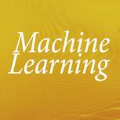Personal Social Ontology (PSO), it is proposed, is how an individual perceives the ontological properties of terms. For example, an absolute fatalist would arguably use terms that remove any form of agency from a person. Such fatalism has the impact of ontologically defining acts such as winning, victory and success, for example, in a manner that is contrary to how a non-fatalist would ontologically define them. While both a fatalist and non-fatalist would agree on the dictionary definition of these terms, they would differ on what and how they can be caused. This difference between the two individuals, it is argued, can be induced from the co-occurrence of terms used by each individual. That such co-occurrence carries an implied social ontology, one that is specific to that person. The use of principal social perceptions -as evidenced by the social psychology and social neuroscience literature, is put forward as a viable method to feature engineer such texts. With the natural language characterisation of these features, they are then usable in machine learning pipelines.
翻译:个人社会本体学(PSO)是个人如何看待术语的本体学特性的建议。例如,绝对的宿命主义者可能会使用从一个人身上消除任何形式的代理的术语。这种宿命论具有本体定义行为的影响,例如,与非致命主义者如何从本体学上定义这些术语的方式相反。虽然一个宿命论者和非致命主义者会同意这些术语的字典定义,但它们会就这些术语的字典性质和如何造成这些术语的不同而有所不同。据论,这两个个人之间的这种差异可能来自每个个人所用术语的共同出现。这种共生现象带有隐含的社会本体,是这个人特有的。主要社会观念的使用,正如社会心理学和社会神经科学文献所证明的那样,被提出为一种可行的方法来描述这些词的文字。随着这些特征的自然语言特性的特性,它们随后可以用于机器学习管道。




